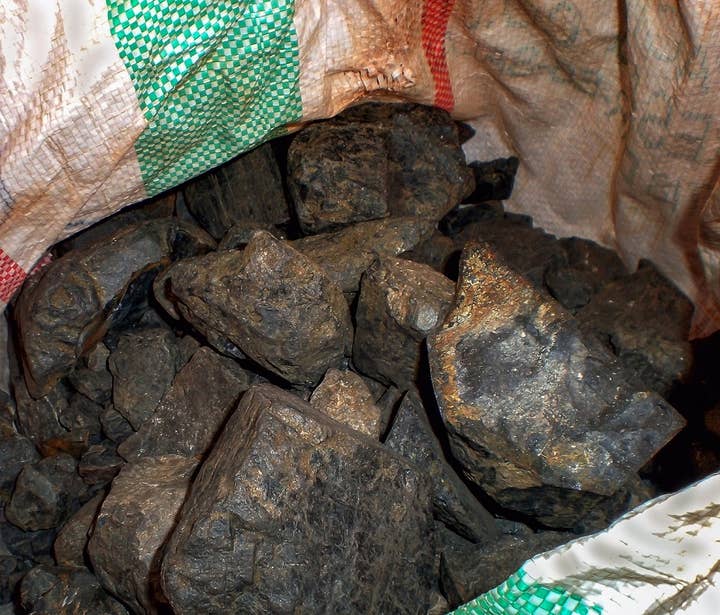Conflict minerals and the challenge of not funding human rights abuses
Our annual assessment expands to look at larger issues around responsible mineral sourcing and Amazon's dismal track record on disclosure
This is GamesIndustry.biz's seventh annual review of the industry conflict minerals disclosures, and we decided to handle it a bit differently this year.
In addition to our usual assessment of each company's performance for the year, we thought it would be a good time to take a bigger picture look at what progress we've seen when it comes to responsible sourcing of the conflict minerals crucial to our game systems, and what still needs to be done on that front. The result is that this piece is a bit longer than usual, so the table below might help you get to the most relevant part for you.
If you're unfamiliar with these reviews or unclear on what exactly conflict minerals are and how the video game industry may be funding armed conflict, slave labor, extortion and more, check out "The basics."
After that, the following five sections are intended to provide an overview of the issue to date: what's been done, how it's worked, and what difficulties remain. That's followed by a glossary of common terms that will be thrown around in the company-by-company breakdowns, and then finally the full list of companies we looked at for this piece.
The overview
Company-by-company performance
The basics
In the 2000s, the United Nations identified connections between the mining of 3TGs (the collective shorthand for tin, tantalum, tungsten, and gold) and the funding of non-state armed militias in the Democratic Republic of Congo (DRC). In some cases, those militias controlled the mines and forced civilians to work them. In others, they extorted money from the mines or taxed the trade routes they used. In short, the money companies paid for minerals in their supply chains was funding the militias that were committing an array of crimes and human rights abuses.
Concern around the subject led to the inclusion of regulations around conflict minerals in the US' Dodd-Frank Wall Street Reform and Consumer Protection Act, which became federal law in 2010. One small part of the law -- Section 1502 -- explains legislators' concern that the trade of 3TGs was funding "extreme levels of violence in the eastern Democratic Republic of the Congo, particularly sexual- and gender-based violence, and contributing to an emergency humanitarian situation therein..."
Section 1502 requires companies that are publicly traded in the US and use 3TGs from the DRC or neighboring countries to have independent audits of their supply chains to ensure they weren't funding armed groups, and to make public disclosure of their findings.
Companies began making those disclosures in 2014. We've reported on them since 2015. You can read our previous reports here:
So is the problem fixed yet?
Well, no.
But to get a more nuanced answer, we reach out to Raphael Deberdt of the Responsible Sourcing Network, a charitable organization dedicated to ending human rights abuses associated with raw material supply chains. Deberdt puts together the group's annual Mining the Disclosures report, and he tells us interest around conflict minerals has sadly waned in recent years.
"Conflict minerals were kind of 'in fashion' a few years ago and companies were actually putting quite a lot of effort there," he says. "[The issues] clearly are still there and there are still militias in Congo, but there's less emphasis on that for some reason."
Deberdt says it's apparent from the topics on the agenda at events like the RMI Annual Conference and the OECD Forum that the focus has shifted in part to sourcing of cobalt, a key mineral in the manufacture of lithium-ion batteries. While mines in the DRC produced roughly 70% of the world's cobalt last year, Deberdt says they are largely located in the southern part of the country where armed groups aren't as active, so the concern about production funding armed conflict is lessened.
"Companies are still involved in conflict minerals, but there's way more emphasis on cobalt mining and the risks there..."
Raphael Deberdt
Even so, there are still significant concerns about cobalt mined with child labor, or without adequate occupational health and safety protections. (Apple, Google, Microsoft and others were sued by International Rights Advocates in 2019 on behalf of children who were maimed or killed in collapses while mining cobalt in the DRC; that case is ongoing.)
"Companies are still involved in conflict minerals, but there's way more emphasis on cobalt mining and the risks there than there is in 3TG," Deberdt says.
This is reflected somewhat in the disclosures we've been seeing companies make regarding conflict minerals. While companies are only required to disclose information about their 3TG supply chains, we've seen an increasing number address cobalt as well in recent years, with some extending even further. For example, Microsoft's filing said it has begun examining its sourcing of aluminum, copper, lithium, magnesium, and nickel.
While the increased attention to other supply chains is encouraging, Deberdt says it has unfortunately come alongside plateauing efforts on conflict minerals.
"What we see right now -- and I haven't finished analyzing the 2021 disclosures, so this is at least in previous years -- is companies are just using the same disclosures from year to year and changing very little information," Deberdt says. "So we don't see the continuous improvement."
Deberdt notes that's clearly not true across the board. While he points to the oil, aerospace, and defense industries as being particularly disappointing in their efforts, he notes the tech sector in general has been "quite good."
"Apple, Microsoft, Intel are usually very good in their disclosures, and they're really big on the continuous improvement aspect," he says.
Even some tech companies that aren't publicly traded in the US and thus aren't required to make disclosures -- Acer, for one -- are outperforming counterparts who are legally obligated to care about this.
"Gold is a low volume, high value commodity, so it's very easy to smuggle out. And it's a preferred commodity for money laundering, transfer of value across borders, etc."
Louis Maréchal
As for the progress seen on 3TGs specifically, we also spoke with Louis Maréchal, the sector lead for conflict minerals at the Organisation for Economic Co-operation and Development (OECD), an international group funded by its member countries to issue policy advice on everything from housing to agriculture to tax reform.
"Over the years, a group of experts mandated by the UN Security Council have reported some of what I would say are significant improvements in the [tin, tantalum, and tungsten] supply chains, with a lot of remaining challenges still," Maréchal says. "And close to none for gold supply chains. It's much more challenging to foster transparency and integrity in local gold supply chains in the Congo."
As he explains, "Gold is a low volume, high value commodity, so it's very easy to smuggle out. And it's a preferred commodity for money laundering, transfer of value across borders, etc. So from an enforcement point of view, it's much more difficult to track than it would be for [tin, tantalum, and tungsten]."
An imperfect solution
As we noted above, Dodd-Frank only applies to 3TGs, but there's plenty of room for human rights abuses with other mineral supply chains as well. And as the OECD explained in a recent report, these problems extend far beyond the DRC as well.
"Support for non-state armed groups has been reported across multiple countries in North and South America, in Afghanistan, in Myanmar, and in West Africa, and extends beyond 3TG, including iron, jade, and talc"
The OECD
"Support for non-state armed groups has been reported across multiple countries in North and South America, in Afghanistan, in Myanmar, and in West Africa, and extends beyond 3TG, including iron, jade, and talc," the group said.
"Likewise, child labour is reported to be occurring in mica supply chains from India, coal in Colombia, zinc in Bolivia, and diamonds in Angola and Central African Republic, but the overwhelming amount of attention is currently given to child labour in cobalt mining from the DRC."
After the link between 3TGs and armed conflict in the DRC was established, the OECD created a five-step framework for private companies to exercise due diligence on their mineral supply chains. Companies use this framework as the basis for their disclosures, but that doesn't necessarily mean they're doing a good job of it.
"We're still not really satisfied with the overall global level and quality of reporting by companies under the OECD framework," Maréchal says. "The OECD guidance does not provide a lot of details about what exactly is expected to be reported, but still we consider it to be clear enough. And in general, we feel companies are still a bit reluctant to disclose information about their efforts to conduct due diligence for many different reasons."
Part of that dissatisfaction is due to Dodd-Frank itself. While Maréchal says the OECD's guidance was designed to be applicable to all mineral supply chains anywhere around the world, the US law only requires publicly traded companies to file disclosures if they use 3TGs, and if those 3TGs are sourced from the DRC or neighboring countries.
As a result, some companies have decided to avoid sourcing minerals from those countries entirely, which Maréchal said misses the point of the OECD's efforts.
"Our standard is about promoting responsible investment in Conflict-Affected High Risk Areas (CAHRAs), as we call it," Maréchal says. "Because clearly in many of those areas, the extractive sector is probably the only one that has the significant potential to contribute to the local development of the economies, and as such to represent an important pillar of peace building.
"We're here to promote responsible investment in those areas. As a matter of consequence, any so-called de-risking strategy to opt out of what may be perceived to be a risky supply chain is really not in the philosophy of the guidance."
"[Dodd-Frank] really played a critical role because it put the emphasis on the issue and it forced global businesses to have a serious look at that"
Louis Maréchal
Another issue with Dodd-Frank is that it's a law companies don't really have to follow. A lawsuit over Dodd-Frank led to multiple courts agreeing that elements of the required disclosures violated companies' First Amendment rights to free speech, and in 2017 the Securities and Exchange Commission announced it was suspending enforcement of the conflict minerals disclosures while it considered how to proceed.
The SEC has not addressed the topic since.
Fortunately, even without enforcement, it seems most companies have continued to file disclosures in accordance with the law.
But even if the US legislation isn't ideal, Maréchal readily admits the positive influence it has had.
"Dodd Frank played a critical role," he says. "Even though it's not exactly aligned with the scope of OECD guidance, it really played a critical role because it put the emphasis on the issue and it forced global businesses to have a serious look at that."
New EU regulations
Thankfully, the world is not relying on Dodd-Frank to tackle this issue alone. On January 1, the European Union's Conflict Minerals Regulation came into effect.
Like Dodd-Frank, the regulation only focuses on 3TGs and requires companies to source those minerals responsibly according to OECD standards. However, Deberdt explains there are some key differences
"The EU regulation is very different from Section 1502 of Dodd-Frank," he says. "It targets only the importers of minerals inside the European Union, which means raw materials. So companies like Google, Apple or similar companies are not really under the scope of the law."
While he believes most of the larger tech companies will end up reporting on their supply chains, it would only be on a voluntary basis.
"There is also no template for the [EU-mandated] disclosures, so we don't really know what they will look like"
Raphael Deberdt
One particular improvement with the EU regulation is that it's global in nature. Instead of limiting the scope of the measure to the DRC and adjoining countries, the EU keeps a list of CAHRAs (reproduced here) and companies sourcing materials from those areas must disclose their supply chain in greater detail to ensure they aren't financing conflict, forced labor, or the like. As of this writing, it identifies more than 200 areas from 30 countries across North America, South America, Africa, Asia, the Middle East, and Europe.
"I think that's very important to avoid the embargo on the Central African mining industry, and especially the Congolese mining industry," Deberdt says. "That's a very good approach that also has been informed by the limitations of [Dodd-Frank]."
That said, Deberdt notes the lack of an enforcement mechanism built into the regulation, and describes it as "very disorganized" when it comes to disclosure requirements.
"Each country will have its own authority that gathers the disclosures, so there's no central disclosure platform or anything," he says. "There is also no template for the disclosures, so we don't really know what they will look like, so that's something I think the European Union should work on in the coming years."
The issue with artisanal miners
It's one thing for governments to mandate supply chains be free of human rights abuses, but there are issues when it comes to proving that.
Third-party auditing processes require due diligence and tracing of minerals from their mines of origin. That can be straight-forward enough when the minerals are coming from large-scale mining operations but there's still a significant portion of the industry comprised of small-scale mining operations and artisanal miners.
Small-scale operations may have access to bulldozers and excavators, but artisanal miners don't even have that much.
"Artisanal is even more challenging than small-scale," Maréchal says. "Artisanal is what you would picture as a family or several people digging in the ground with shovels, with very little mechanized equipment."
"The artisanal miners are the ones that are traditionally most exposed to racketeering, extortion, abuses of human rights, etc."
Louis Maréchal
Maréchal estimates roughly 80% of artisanal and small-scale mining is informal, so it typically happens without proper permits or adherence to environmental and labour regulations. He says they typically don't have a budget for anything, and work with very few health and safety precautions.
He adds, "The artisanal miners are the ones that are traditionally most exposed to racketeering, extortion, abuses of human rights, etc."
And while heavily mechanized large-scale operations are said to produce 90% of the world's mining output, artisanal and small-scale miners make up 90% of the world's mining labor force.
So if companies are scrubbing their supply chains of artisanal and small-scale miners to ensure responsible sourcing, they're in danger of leaving the vast majority of the mining labor force outside the protections legislation like the Dodd-Frank Act and the EU regulations were intended to provide.
"Our standard is very clear that companies should remain engaged in supply chains, even if they identify informal miners," Maréchal says. "What they need to do is be able to understand how they can provide support to those informal miners."
That support can come from governments putting together programs to progressively formalize miners, but private companies can play a role as well. For example, the DRC in 2019 established the Entreprise Générale du Cobalt to help formalize artisanal mining in the country, and commodities trader Trafigura subsequently struck a five-year deal with the group to purchase up to $50 million of cobalt a month from the DRC's artisanal miners complying with OECD guidelines.
Looking forward
Based upon our annual reviews of conflict minerals disclosures and our conversations with Maréchal and Deberdt, it seems safe to say there are signs of improvement when it comes to ethical sourcing of the minerals the games industry relies on, even if certain companies may need to put in a little more effort.
Looking ahead, the EU's new regulations and public-private joint efforts to formalize small-scale and artisanal miners are welcome developments we can hope will achieve their goals.
Going beyond those developments, Maréchal notes that key players like the London Metal Exchange -- which hosted $11.6 trillion worth of industrial metal trading last year -- are using their influence to push for improvements as well. Beginning next year, all listed brands trading on the exchange will need to be compliant with responsible sourcing requirements based on the OECD framework by 2023, and fully engaged in the process of becoming compliant by 2022.
It's encouraging to see these sorts of efforts taking root, because these supply chain problems are so abstracted from the experience of end users that it seems unlikely any kind of boycott or public pressure campaign could gain traction.
"We should stop trying to put the pressure on the customers and actually ask the state -- Washington, basically -- to implement the laws in a meaningful way," Deberdt says. "We need to change from a customer-based approach to more of a regulatory approach, to make sure the laws are in place, that the companies are accountable, and that's the only way to change the situation."
Common terms
There are a handful of terms and acronyms that we're going to lean on in the rest of this article. Here are a few of the big ones and what they mean:
- 3TG - This means tin, tungsten, tantalum, and gold, collectively the four substances US conflict minerals laws require publicly traded companies to report on the use of in their supply chains.
- SORs - Smelters and refiners, one of the furthest upstream elements in supply chains for minerals, and well-positioned to have visibility into which mines produced their minerals. Companies typically do not do business directly with SORs, so they exert their influence on their suppliers, who may in turn have additional suppliers in between themselves and the SORs.
- DRC - The Democratic Republic of Congo, one of the first countries where the financial ties between the mining of conflict minerals and armed groups was first established.
- Covered Country - As defined by the Dodd-Frank Act, this includes the Democratic Republic of Congo and adjoining countries: Angola, Burundi, Central African Republic, Rwanda, South Sudan, Tanzania, Uganda, and Zambia. Some companies base their disclosures around 3TGs from these areas.
- CAHRAs - Conflict-Affected and High Risk Areas, a grouping which includes some of the Covered Countries but also a variety of other regions worldwide. Some companies choose to base their disclosures on CAHRAs as well as Covered Countries.
- Conformant - A catch-all description used for smelters and refiners who have passed an audit process to ensure responsible sourcing. These programs are overseen by a number of outfits, including the London Bullion Market Association, the Responsible Jewellery Council, or the Responsible Minerals Initiative.
- RMAP - Responsible Minerals Assurance Process, a program created by the Responsible Minerals Initiative to help companies responsibly source minerals in their supply chains.
- CMRT - Conflict Minerals Reporting Template - A standardized reporting measure developed by the Responsible Minerals Initiative to allow companies to gather and submit information about the upstream elements of their supply chains and every link between them and a mineral's smelter or refiner.
Amazon
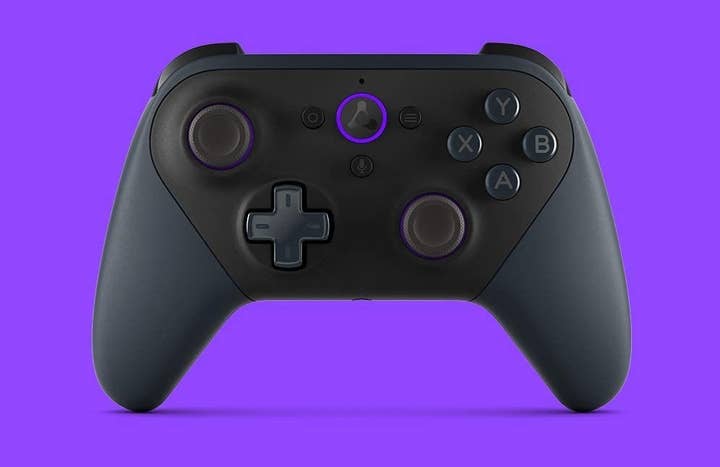
We haven't covered Amazon previously in this report, but with the company's entrance into cloud gaming with its Luna service and controller, we decided to include it this year. The company also uses 3TGs in plenty of other electronics, apparel, and consumer devices it sells.
The results were not encouraging.
Amazon only said that "a majority" of its suppliers had certified that their supply chain was clean, either because they didn't use 3TGs, didn't source them from the Covered Countries, or used only conformant SORs. As for the rest?
"The remaining suppliers are still completing investigations of their supply chains," the company said.
That was word-for-word what the company reported last year. And the year before that. And every year since the company first had to file a conflict minerals disclosure on its supply chain in 2014. (The first two years also noted the possibility that suppliers may have been waiting for SORs to finish audits, but were substantially the same beyond that.)
In eight years of filings, Amazon has never given an indication as to how large a majority of its suppliers filled out their CMRT surveys or how many are still investigating their supply chains. There's no telling how many SORs they might collectively source from, much less whether those SORs would be funding militias and/or human rights abuses.
As of this writing, Amazon's corporate sustainability website has a 2020 Supplier List spreadsheet listing 1,388 suppliers worldwide.
And what is it doing to ensure it fills in those knowledge gaps?
"For suppliers that were unable to determine the sources of such minerals, we actively reviewed and discussed with each such supplier our policy regarding gold, tin, tungsten, and tantalum, and will continue evaluating the results of their efforts in 2021 in order to mitigate the risk that minerals procured by any of our suppliers benefit armed groups in the DRC region."
Amazon doesn't even bring up the possibility of losing its business as a consequence for non-compliance. In fact, here's the entirety of the Conflict Minerals section of its Supplier Code of Conduct:
"Amazon is committed to avoiding the use of minerals that have fueled conflict in the Democratic Republic of the Congo or an adjoining country. We expect suppliers to support our effort to identify the origin of designated minerals used in our products."
Amazon has shown zero demonstrable progress on conflict minerals since reporting began.
It's possible the company has done an admirable job at ensuring its supply chain is conflict-free and simply does a poor job of communicating that to the public in a transparent way. But looking at the company's "Supply Chain Commitments" shows a consistent lack of urgency in addressing key issues that makes us skeptical.
On the subject of forced labor in its supply chain, its goals last year were to have all its truck drivers complete "Truckers Against Trafficking" training and to "launch training for Amazon suppliers on responsible recruitment practices by the end of 2020." Its latest Modern Slavery Statement says it reached the Truckers Against Trafficking goal a month late, and doesn't directly address the latter goal except to state that it enrolled 31 suppliers (roughly 2% of all Amazon suppliers) in a responsible recruitment training program.
The company has been a little more active on environmental protection, as Amazon has set a goal to "collect environmental performance data from 200 suppliers by the end of 2021." That represents a whopping 15% of the company's suppliers for which Amazon might have data by the end of this year. As for fair wages, the company's goal is to "launch in-depth research into fair wages within our Amazon-branded products supply chains in 2021."
There's no indication as to how long it will take Amazon to fully collect supply chain data about environmental issues or fair wages, much less how long it might take to analyze the data and then what sort of timeframe it would need to actually act on it.
Sony
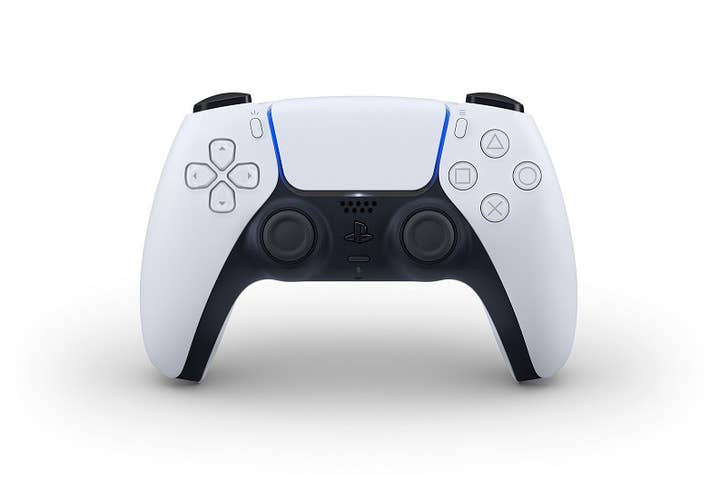
This is the seventh year we've run this report, and Sony has typically been among the worst companies we've looked at when it comes to understanding its own supply chain. However, this year the company has shown significant improvement on at least one front, in that its suppliers are actually bothering to answer its questions.
For the first time, Sony reported that all of its direct suppliers returned its requests to fill out the CMRT surveys. Only 18 of its suppliers are sourcing from SORs that aren't conformant, down from 88 last year. Additionally, half of those suppliers said they would stop using SORs that were unwilling to undergo the compliance assessment process, compared to just a quarter of last year's group who said they were on board with the effort.
That's the good news. The bad news is that Sony's supply chain appears to be no less dependent on non-conformant SORs. Sony reported that 53 of the 305 SORs in its supply chain are non-conformant, meaning the company has virtually the same 83% conformant rate it has hovered around for years.
Also, Sony doesn't even know where 52 of those non-conformant SORs (or their mines of origin) are located, but does not believe they are in Covered Countries. That's a significant increase since last year, when 29 SORs fell into that mystery location category.
As for what Sony will do to improve on this front, the company signalled no grand change in approach, with an "Additional Efforts to Mitigate Risks in our Supply Chain and Improve Due Diligence" that was word-for-word identical to last year's.
"With respect to in-scope direct suppliers that did not respond to our CMRT request, Responsible Management will take appropriate actions over the next year to promote responsible 3TG sourcing," the company said. "These actions may include, among others, visiting the suppliers directly to stress the importance of responding to our information requests and complying with our policy, reminding the suppliers to source materials from RMAP conformant SORs and reviewing the business relationship with the supplier, which may result in cancelling the supplier's contract or implementing a phased-in termination of the business relationship by stopping new orders."
Nintendo
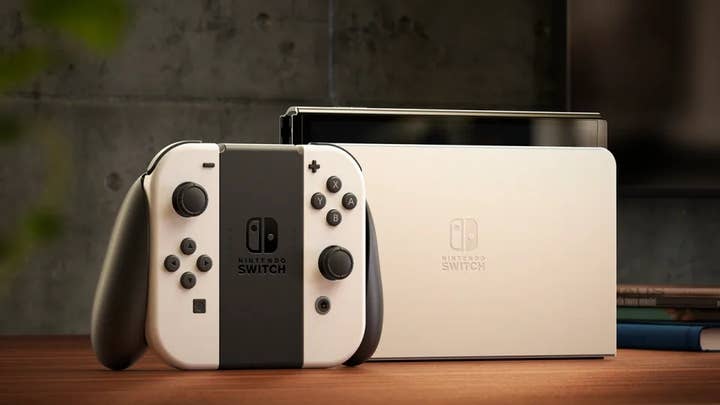
Nintendo is not required to file an annual conflict minerals report with the US Securities and Exchange Commission, but each summer it does update its corporate social responsibility page with new information about its conflict minerals sourcing.
The company released its update late last month, and the results are mostly an improvement over last year, when 83% of the identified 320 SORs in its supply chain were conformant.
This year, Nintendo once again saw a 100% response rate from its suppliers, and 100% of the 266 SORs in the chain were conformant. These aren't just 3TG smelters, either, as the list included 11 conformant cobalt smelters as well.
That's laudable, but Nintendo appears to be one of the companies that achieves its conformant figures by cutting entire countries out of its supply chain, even if the SORs there are certified by an industry-standard audit.
"We require production partners to establish a policy that prohibits the use of minerals from Conflict-Affected and High-Risk Areas in their respective supply chains," Nintendo says on its corporate social responsibility page.
Nintendo published a list of its 266 SORs and their locations. We found just one -- a tin smelter in Rwanda -- from one of the Dodd-Frank Act's Covered Countries. None were located in the European Union's list of CAHRAs.
Microsoft
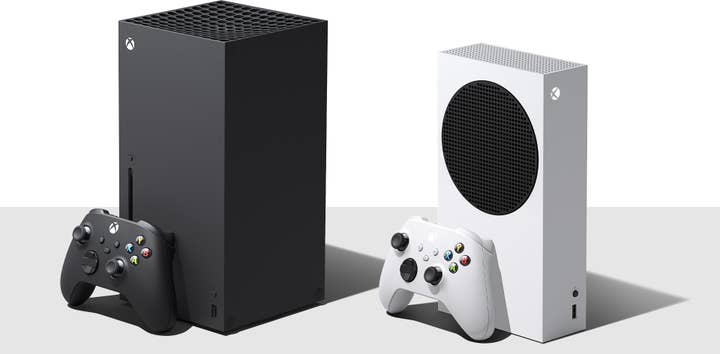
Microsoft backslid a bit this year after a near-perfect 2019 report.
First off, one of its suppliers failed to take the CMRT survey, resulting in a 99.5% return rate after last year's perfect 100%. Microsoft has historically been one of the better companies on this front, posting survey returns of 97% or higher over the past six years.
Much more concerning is the dip in the percentage of conformant SORs known to be in the supply chain. Last year, all but one of the 233 SORs Microsoft identified in its supply chain were approved by an independent third-party audit program, for a rate of 99.6%.
This year, Microsoft identified 301 SORs in its supply chain, but only 237, or 78.7%, had passed a third-party conflict minerals audit, the lowest number the company has posted in six years. Even including the dozen SORs in the process of becoming conformant only brings it up to 82.7%.
As for how the company plans to return its numbers to their previous levels, Microsoft plans to "require our in-scope suppliers to meet our requirements for responsibly sourcing raw materials and finding alternative upstream suppliers if they are found to be sourcing from non-conformant SORs."
It did not terminate any business with suppliers over non-conformant SORs in 2020.
Apple
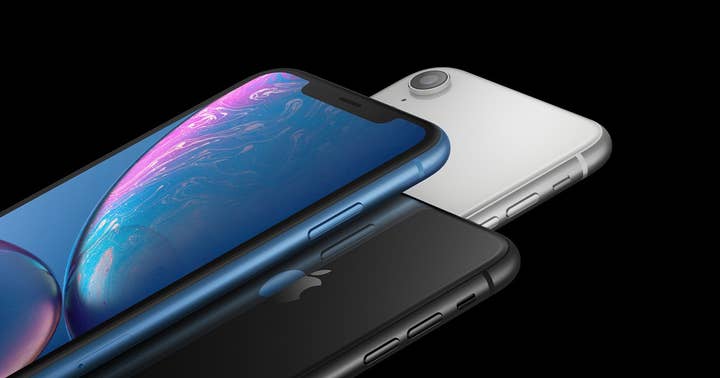
Apple continued to set the standard for conflict minerals reporting among the companies we looked at. 2020 was Apple's sixth straight year where 100% of its suppliers returned its surveys about the SORs used.
Collectively, they identified 250 SORs in Apple's supply chain over the year, all but seven of which had passed (or were participating in) a third-party audit. The seven who either stopped being part of those third-party audit programs or otherwise fell short of Apple's requirements were removed from the supply chain, and Apple ended the year with 243 out of 243 compliant SORs.
Apple noted that since 2009, it has kicked 146 SORs out of its supply chain for non-compliance, demonstrating far less tolerance on the subject than some of the other companies in this report.
The company also directly communicates with all of the 3TG SORs in its supply chain and is involved in multiple partnerships centered on responsible and safe artisanal mining.

Like Microsoft, Facebook also saw some backsliding in its supply chain numbers. A year after having 230 of 232 SORs (99%) in its supply chain conformant, the Oculus maker's report indicated that 235 out of 247 SORs (95%) in its supply chain passed a third-party audit in 2020.
Of those dozen nonconformant SORs, Facebook said nine are in the auditing process already, while three are not. The company's "engagement strategy" for nonconformant SORs includes requesting the relevant supplier to "encourage" their SORs to begin the RMAP process, with possible follow-up measures including awareness training for the supplier or halting business with them entirely.
Facebook's report does not specify if it has ever taken the step of terminating a business relationship over conflict minerals reporting issues.
Google/Alphabet
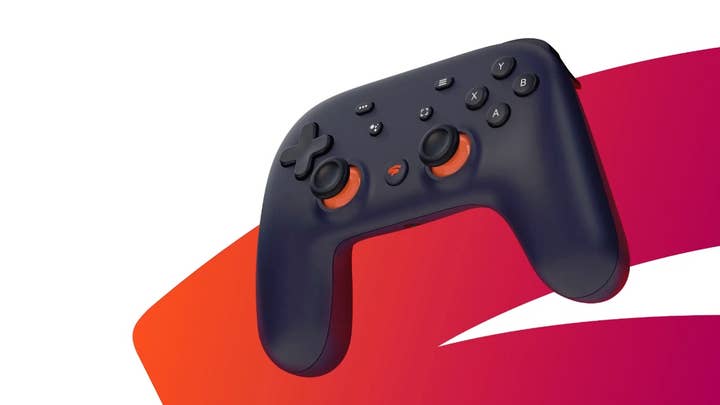
Google showed some improvement this year on the transparency front, as it reported that 100% of its suppliers returned their conflict minerals reporting surveys for the company. Last year it merely said the response rate was high, but gave no specifics beyond that.
As for the results of those surveys, Google identified 304 smelters in its supply chain, 80% of which (242) were conformant with RMI standards, while another 4% (12) were active in the RMI process. The remaining 16%, or 50 smelters, were "confirmed by an independent third party to not be sourcing from the Covered Countries."
Google also said it explicitly encourages its suppliers to source its materials from conformant smelters in the DRC and other CAHRAs.
"We recognize that efforts to reduce violence associated with conflict minerals are ongoing and require continually adapting to changing situations," Google said in its filing. "We are committed to improving our compliance processes as well as actively engaging upstream directly in-region."
HTC

HTC isn't required to report on its conflict minerals sourcing with the SEC and a representative told us the company doesn't publicly share the results of any surveys or audits, but referred us (like last year) to the corporate responsibility section of its official website.
On that site, HTC says it prohibits child labor and its suppliers are contractually obligated to eradicate modern slavery within their business and hold their own suppliers to account as well.
However, like Nintendo, HTC has chosen to de-risk its supply chain in a way that runs contrary to the goals of the OECD framework. As HTC's site explains, "Since traceability remains difficult, HTC has stopped sourcing minerals from the Democratic Republic of Congo and the Central African region altogether. As a condition of doing business with HTC, our suppliers must acknowledge and agree to our responsible sourcing policy. We review our suppliers' mineral sourcing practices through our supplier audit program."
Valve

Make it three straight years Valve hasn't seen fit to respond to multiple inquiries about its conflict minerals sourcing for hardware like the Valve Index and its peripherals.
Valve is not publicly traded so there's no legal obligation to report, and the company's track record on social responsibility is spotty at best, but the continued silence on this issue somehow remains disappointing.
We can only hope Valve is taking the subject more seriously in private, particularly if reports that it is growing its hardware business with a PC-based handheld device are accurate.
Activision Blizzard
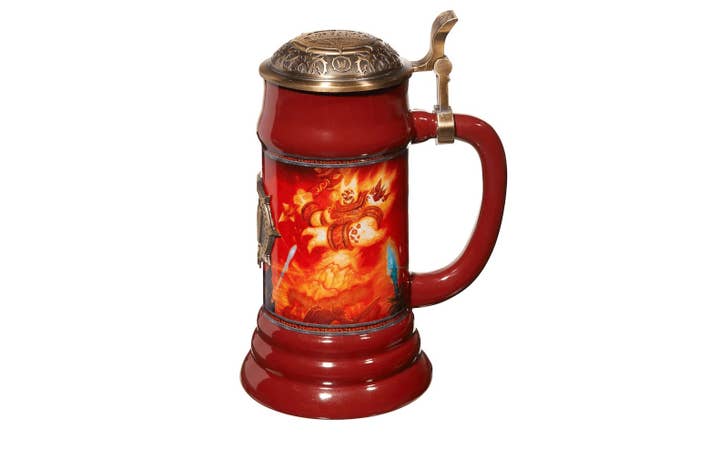
With the shelving of the Skylanders toys-to-life franchise, Activision Blizzard has gradually become little more than a footnote in these reports.
This year the company reported 11 suppliers, all of whom returned completed surveys. Between them all, Activision Blizzard only identified a single product it manufactured that used 3TGs, "a branded product associated with our World of Warcraft franchise."
A representative confirmed for us this product was a World of Warcraft beer stein (like the one pictured above). It was only made by one of Activision Blizzard's suppliers, and the tin used in it was sourced from a single smelter in China that was on the RMI's conformant smelter list.
Logitech

As a peripheral maker, Logitech uses 3TGs in a slew of its offerings, including mice, keyboards, webcams, flight sticks, headsets, steering wheels, speakers, and smart home devices. It identified 270 suppliers who dealt in 3TGs, and received a 100% response rate from them on CMRT surveys.
Between those suppliers, Logitech identified 247 SORs in its supply chain, with 243 (98.4%) already conformant and the remaining 4 (1.6%) in the process of becoming conformant. That's an improvement over last year when about 1.1% of the SORs in its supply chain (a total of three facilities) were neither conformant nor in a program to become so.
Turtle Beach
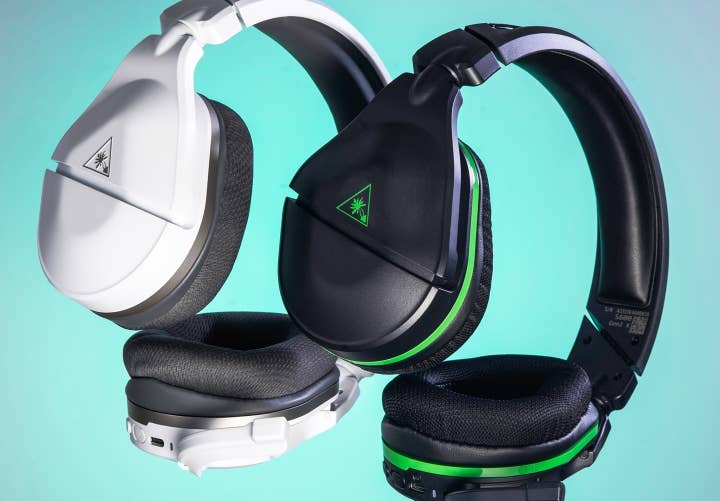
Like Logitech, Turtle Beach uses 3TGs in a variety of its products, including headsets, mice, keyboards, and audio controllers. It identified a dozen manufacturing partners that used 3TGs, all of which returned CMRT surveys. While all but one of the partners said they didn't source materials from the covered countries, four of them obtained materials from non-conformant SORs.
Of the 246 SORs in in its supply chain last year, 232 (94%) were conformant, with the remaining 14 (5.7%) nonconformant. Turtle Beach couldn't identify the home countries for 11 of those nonconformant SORs.
The company noted some of those reported SORs may not be affiliated with its products because certain manufacturing partners report all the SORs they do business with, rather than just the ones whose materials are used in Turtle Beach goods.
"Throughout 2020, we worked with our manufacturing partners in an effort to source only from smelters and refiners that were validated as conformant smelters with a responsibly-sourced auditing program," Turtle Beach said.
Turtle Beach did not lay out steps it would take to improve its results for next year's report, but did say it has a goal to only source from conformant SORs.
Razer
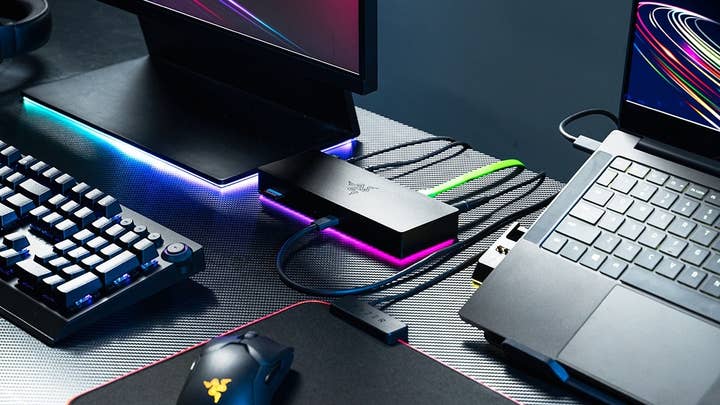
Razer doesn't file with the SEC, so even though its mice, keyboards and other peripherals presumably use 3TG, there's no detailed conflict minerals information from the peripheral maker. That said, we asked the company about its practices to ensure its products aren't funding conflict and human rights abuses, and it provided the following comment:
"Razer is fully committed to responsibly sourcing all raw materials and components used in our products from environmentally responsible, nonexploitative companies. All Razer products sold in the United States and Europe are compliant with Restriction of Hazardous Substances (RoHS2); Registration, Evaluation, Authorisation and Restriction of Chemicals (REACH); and Waste Electrical and Electronic Equipment (WEEE).
"As Razer embarks on a long-term commitment to bolster our corporate responsibility endeavors, we remain dedicated to exceeding the minimum requirements to meet international standards throughout our supply chain. This includes conducting independent third-party audit programs on all our suppliers and ensuring adherence to our robust supplier quality standards and supplier engagement programs, in alignment with Razer's commitment to responsible sourcing."
